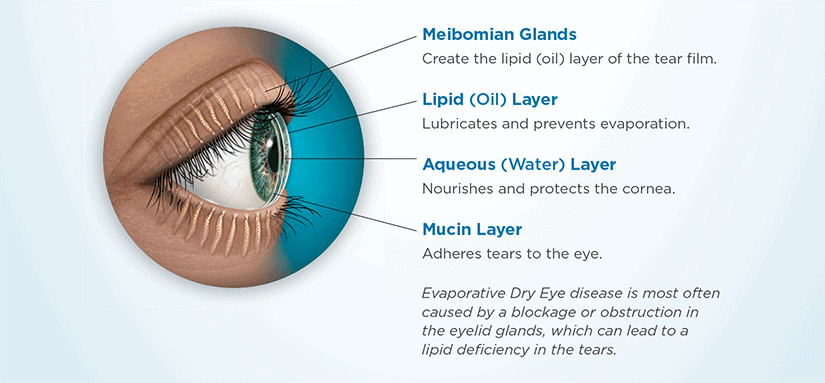Attention: Dry Eye Sufferers
Are your eyes itchy, red, irritated or light sensitive? Do you rely on an almost constant supply of drops or lubricants that only produce temporary relief? Do your eyes increase in discomfort with seasonal changes, after prolonged contact wear or computer use? If so, you may suffer from a common condition called Dry Eye Syndrome.
Dry Eye Syndrome is one of the most under-diagnosed issues and affects an estimated 23 million people in America. It is defined as ‘suffering from a lack of tear production needed to properly lubricate the eyes.’ The natural tears you produce provide both a protective barrier and the adequate moisture needed to maintain comfort and clear vision. Simply put, when you don’t have enough tears to keep your eyes moist, they become dry and the discomfort begins.
Dry eye symptoms may include some or all of the following:
- Contact lens intolerance
- General eye irritation
- Stinging or burning
- Scratchiness/itchiness
- Fluctuating vision changes
- Tearing up when trying to focus heavily – such as reading, driving, or playing sports
- Difficulty wearing contact lenses
- Foreign body feeling
- Tired eyes, such as after prolonged computer use
Tear Breakdown:
Your tears provide several essential functions toward keeping your eyes healthy. They rinse any dust or debris from your eyes, they keep your eyes lubricated and comfortable, and they even combat bacteria that attempt to form on the front of your eyes.
The tears your eyes produce are actually made up of three distinct layers, each one serving a specific purpose:
 Without the appropriate levels of lubrication, your eyes cannot function properly. Once an imbalance occurs in any layer of tear film, dry eye syndrome sets in.
Without the appropriate levels of lubrication, your eyes cannot function properly. Once an imbalance occurs in any layer of tear film, dry eye syndrome sets in.
There are two main causes for Dry Eye Syndrome:
- When your eyes do not produce sufficient tears, called aqueous deficient dry eye
- When your tears evaporate too quickly, called evaporative dry eye
Evaporative dry eye is much more common, accounting for roughly eight out of 10 dry eye diagnosis. It exists when the meibomian glands in your eyelids become blocked and cannot produce the lipid oil needed to keep your tears from evaporating. This lack of tear oil is often referred to as meibomian gland dysfunction (MGD).
At Kugler Vision, we specialize in all of the latest dry eye evaluation and treatment options, including the revolutionary LipiFlow treatment for MGD. If you are seeking relief for similar dry eye symptoms, schedule a dry eye consultation today.



